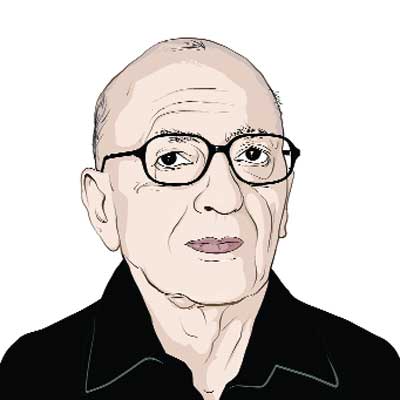Opinion Our battle,their wars
Chinas hostility to India,which caused the 1962 conflict,arose from its own tension with the USSR which had its own problems
The melancholy narrative of the border war with China in 1962 cannot be complete without a brief mention of nearly half a dozen factors that significantly impacted the month-long clash of arms,and its aftermath. Arguably,one of these important factors was Mao Zedongs personal and deep hostility to both India and Jawaharlal Nehru. He was angry because both this country and its prime minister at that time were receiving enormous international attention,and occasional appreciation,which he believed should rightly have been directed towards the Middle Kingdom and its emperor.
This malevolence of Chinas chairman was greatly aggravated by Tibet,on the one hand,and the Sino-Soviet split leading to close Indo-Soviet relations,on the other. Chinas paranoia about Tibet,which persists to this day,and Indias welcome to the Dalai Lama,combined with some help that Indian Intelligence Bureau had started giving the CIA for its activities in Tibet after 1960,had fuelled Maos fury. It is no secret that the two viciously vituperative papers on Nehru and his philosophy on Tibet were edited by Mao himself,though his trusted aide,Chen Bota,had drafted them.
Nor is it a secret any longer that the split between China and the Soviet Union had started soon after Stalins death in 1953. Mao had then begun to believe that he was the tallest leader,not only of Asia,but also of the communist world. Nikita Khrushchev,Stalins successor,who was to denigrate the dead Russian leader in 1956,ridiculed this. By 1960,when the last-ditch Nehru-Zhou Enlai talks in New Delhi to settle the border question had collapsed,the Sino-Soviet split had reached a crescendo. Moscow had reneged on its promise to transfer the technology for manufacturing nuclear weapons to China,and had withdrawn Soviet advisers not only from the nuclear sector,but across the board. A year later,in August,the Soviet Union signed an agreement to give India MiG-21 fighter aircraft as well as permission to produce it under licence. The Chinese were livid.
Purely by coincidence,on the day the MiG-21 agreement was signed,Fidel Castro arrived in the Soviet capital to a rapturous welcome. Unknown to the world,this was the beginning of what was to eventually develop into the Cuban missile crisis,which was to have a profound influence on the course of the war in the high Himalayas.
While other countries,including the United States,knew nothing about the installation of Soviet missiles in Cuba,the Chinese,with their superior contacts in Havana,had got wind of it. (Source: Harvard Sinologist Roderick Macfarquhar in the chapter Maos India War in his third volume of The Origins of Cultural Revolution.) We,of course,were totally in the dark. The Chinese put their knowledge to deft use,and not merely in deciding the timing of their invasion of India,which was dictated also by the weather. Far more adroitly,they used it to arm-twist Khrushchev into abandoning all ideas of siding with India in the war that was in the offing,because of what they called constant Indian incursions into Chinese territory.
What the Chinese thus achieved is already in the public domain. Not wanting to confront both the US and China at the same time,Khrushchev did everything possible to propitiate the Chinese. For this purpose,he chose the occasion of his farewell dinner to the Chinese ambassador,Liu Xiao,who was returning home after serving in Moscow for eight years. Kremlin watchers were startled by the exceptional cordiality shown to Liu at both his two-hour farewell call on Khrushchev and the dinner in his honour at which the entire presidium of the Communist Party of the Soviet Union (CPSU) was present.
In no uncertain terms,the Soviet leader told Liu and other guests that on the question of the Sino-Indian border,the Soviet Union was on Chinas side,and this was the unanimous view of the entire presidium. If,unhappily,there was an attack on China,we (will) stand together with China. If the Chinese so wanted,Khrushchev added,the Soviet Union would proclaim this; it had not done so previously to avoid driving the Indians into the arms of the Americans who were trying to sell them armaments.
Since the Chinese had strongly protested the supply of MiG-21s to India,Khrushchev expressed his personal view that the Soviet Union should postpone selling these aircraft until after the border dispute was settled,not because a few aircraft would make India stronger than China,but to prevent our enemies from sowing discord. Frol Kozlov and other members of the CPSU presidium were seen nodding assent.
How sincere Khrushchev was in making these remarks,which would have been music to Chinese ears,is a moot point. For only two years earlier,his conversations with Mao in Beijing had degenerated into virtual abuse. (Incidentally,transcripts of the Mao-Khrushchev exchanges have been declassified by the Chinese,along with a plethora of other secret documents about the 1962 war. Alas,our record in this respect remains appalling 50 years later.)
Much worse was to follow after the Chinese launched their offensive just a few days before President John F. Kennedy was shown the aerial photographs of the Soviet missiles on Cuban soil. On October 25,when the first phase of the Chinese advance ended,Pravda published the famous editorial that talked about our Chinese brothers and Indian friends,and advised this country to stop fighting and start negotiating a settlement on the basis of the Chinese proposals. Khrushchev said the same thing in a personal letter to Nehru to which the latter sent a persuasive reply explaining why the Chinese terms were unacceptable. Aggression and negotiations could not take place at the same time,he added. First the Chinese must withdraw to the pre-September 8 positions.
Only after the Cuban missile crisis had been resolved did Khrushchev revert to a position of neutrality between India and China,which the Chinese interpreted as a betrayal and unabashed support for India. Indeed,Mao delivered a public rebuke to Khrushchev for cowardice in the Caribbean and perfidy in the Himalayas.
The writer is a Delhi-based political commentator





